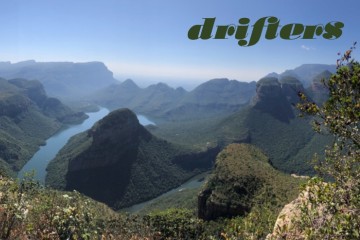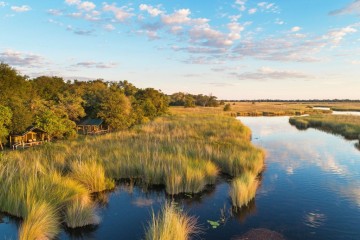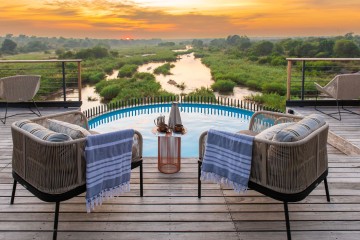When you start planning an African safari, you soon realize that you have two main options from which to choose. Should you stay in a private game reserve or visit a national park instead? What are the differences, and how do they affect your overall safari experience?
To help you plan the Africa safari you've always dreamt about, we outline the major pros and cons of both options. Ultimately, the choice between staying in a private game reserve and a national park comes down to your preferences, budget, and what kind of African wildlife and wilderness experience you seek. Both options offer incredible opportunities to witness the continent’s iconic highlights, yet the experience and atmosphere can differ. In peak season, the differences can be considerable.
To this end, here's what we’ll cover in this guide:
Africa safari experience
Private game reserves vs national parks in Africa – what are the main differences on safari?
-
Accessibility & Experience
-
Size & Wildlife Numbers
-
Wildlife Spotting Experiences
-
Crowd Size
-
Accommodation Options
-
Guided Experiences
-
Costs
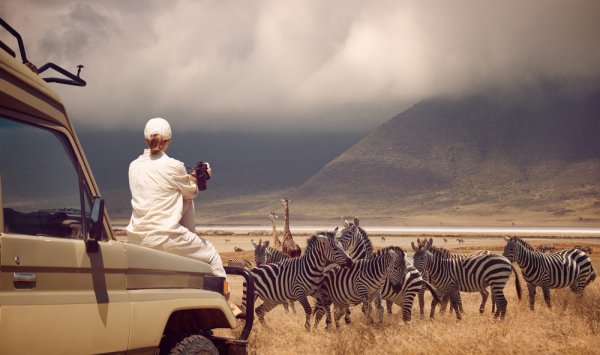
African safari - the experience of a lifetime
Africa safari experience – What is a private game reserve?
As opposed to national parks, which are government-owned and run, private game reserves – as the name suggests – are owned by individuals, companies or organizations. This kind of private ownership allows for more flexibility in management decisions, including conservation initiatives, wildlife protection, and visitor experiences.
Within the private reserve umbrella, you will also find private concessions, also known as wildlife conservancies in some countries.
About private reserves
Private game reserves are usually nestled just outside major national parks' boundaries. The landscapes and wildlife therein are just about identical, yet fences separate the two entities so visitors in one cannot enter the other's boundaries.
Private game reserves focus on offering exclusive, high-quality safari experiences. They have the funds to build luxury game lodges with all the comforts and indulgences you could ever desire on safari in Africa.
On the other hand, a country’s government, tasked with overseeing many national parks within its borders, has only so much money it can pour back into a singular park’s management and infrastructure. In some regions of Africa, the differences in invested funds between national parks and private game reserves are pretty noticeable.
As you might imagine, the most famous national parks in Africa, like Kruger National Park (South Africa), Serengeti National Park (Tanzania), Etosha National Park (Namibia), Moremi Game Reserve (Botswana) or Amboseli National Park (Kenya), receive more funds than smaller, lesser-known public reserves. They attract more visitors, so investing more in them makes sense. Nevertheless, even in the uber-famous Kruger, the most luxurious safari experiences are not within the park's boundaries but its neighbour's, the Sabi Sabi Private Game Reserve.
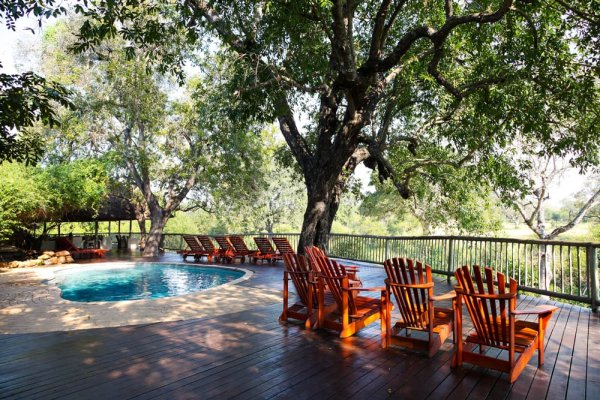
Not a shabby spot for some post-safari refreshments – Sabi Sabi Private Game Reserve, South Africa
About private concessions
Organizations or wealthy individuals are sometimes granted government concessions to develop, protect and manage a specific area within a national park. These are called private concessions (or wildlife conservancies). They do not have fences separating their land (and wildlife) from the main park, although they offer the same exclusivity you can experience in a private game reserve. That's fewer tour groups, more upmarket accommodation, and a quieter, more immersive and intimate African safari experience. Say you want the experience of a specific national park but want to up the luxury and be away from the tourist masses – then a private concession will hit the spot.
Private game reserves, concessions and conservancies work in conjunction with national parks to nurture, manage and protect Africa’s indigenous people, wildlife and wilderness. The most significant conservation efforts on the continent would not exist without the cooperation of all three.
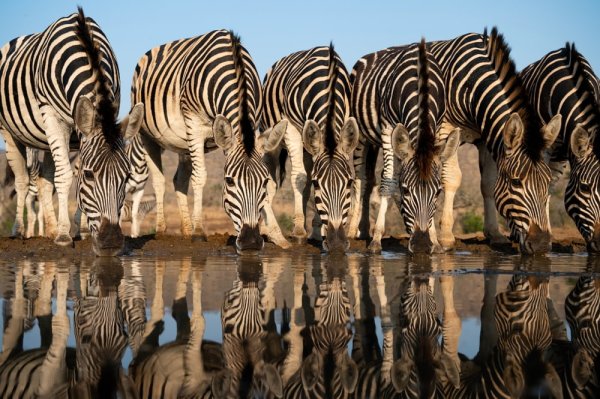
The classic African ‘sundowner’
Now that you better understand the idea behind private game reserves and national parks in Africa, it's time to dive into the nitty-gritty details of what exactly sets them apart and how this can influence your safari experience.
Private game reserves vs national parks in Africa – what are the main differences on safari?
1. Accessibility & Experience
-
Private Game Reserves: Private reserves are often smaller and more exclusive, allowing for a more personalized experience. They tend to have fewer tourists because day visitors are usually not permitted access to the reserve – the only way to visit is to be a guest in their lodge. This leads to a more intimate, bespoke and flexible wildlife experience. Some more exclusive private reserves are located in remote and isolated regions, requiring more transfer time.
-
National Parks: National parks are usually larger and open to the public, attracting a much higher number of tourists daily. They offer a more extensive range of accommodations and amenities to suit all budgets, including rustic campsites. Visitors can enjoy a self-guided game drive within the park or join a local outfitter. The gathering of different vehicles often creates competitiveness and overcrowding in the most popular spots – at least in high season. The upside is that all major national parks are easily accessible and boast airports nearby.
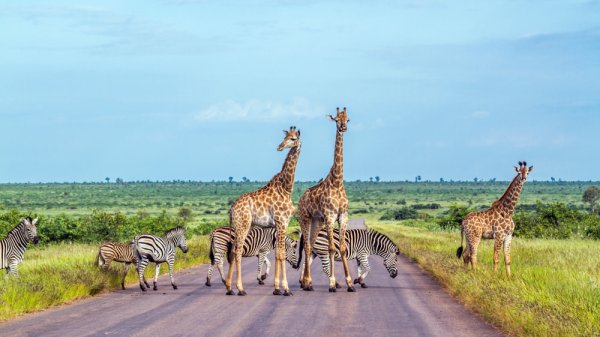
The original zebra (and giraffe) crossing, Kruger National Park, South Africa
2. Size & Wildlife Numbers
-
Private Game Reserves: Private game reserves are small pockets of land brimming with iconic wildlife and wilderness areas. The number of animals is nowhere near that of national parks, although due to smaller crowds, they are renowned for often offering a better-quality viewing experience overall. Their fewer animals are concentrated over smaller areas, so, in the end, you may see more.
-
National Parks: Many first-time visitors have difficulty grasping the expanse of Africa's national parks, many of which outrank some European countries. Namibia’s Namib-Naukluft National Park is roughly the size of Switzerland. Kruger National Park is larger than Slovenia and only marginally smaller than Belgium. Naturally, having such colossal boundaries translates into an unrivalled concentration of wildlife, although they are spread over much (much) greater areas.
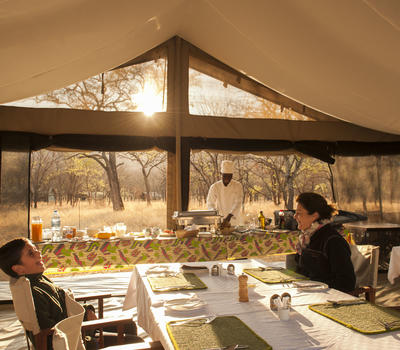
The Ndutu Kati Kati Tented Camp is one of the most magical accommodation options in the Serengeti – it’s set up seasonally, in the southern end of the park, to offer an unrivalled immersive experience during the yearly wildlife migration
3. Wildlife Spotting Experiences
-
Private Game Reserves: Private reserves offer more flexible and off-road game drives. Guides can track wildlife more closely, increasing the chances of encountering rare or elusive animals. They can also get you closer to a hotspot and coordinate their efforts with other vehicles from the lodge so that everyone enjoys an intimate and rewarding experience – all without getting in one another's way. Rather than compete for the best viewing spots, they work together so every vehicle has equal time.
-
National Parks: In national parks, game drives usually follow designated routes, and off-road driving is typically not permitted (see #7), so luck can determine just how close you get to a specific wildlife sighting. Wildlife spotting can be less predictable due to larger crowds and can be hard-fought in peak times. Naturally, every guide wants to give their clients the best experience.
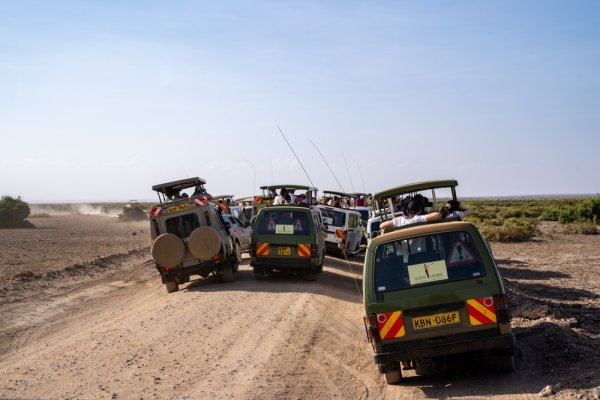
All this for one lion?! Traffic jam in Amboseli National Park, Kenya.
4. Crowd Size
-
Private Game Reserves: As mentioned, private reserves limit the number of vehicles and visitors, resulting in a more uncrowded experience. The only safari tourists with whom you'll share your days, amenities, and experiences are fellow lodge guests.
-
National Parks: National parks can get crowded, especially during peak tourist seasons. This can impact the sense of wilderness and tranquillity – even though (in theory) there is enough room for everyone. Guided excursions tend to visit the same places and follow similar routes. There is only so far you can drive on a 3-hour game drive.
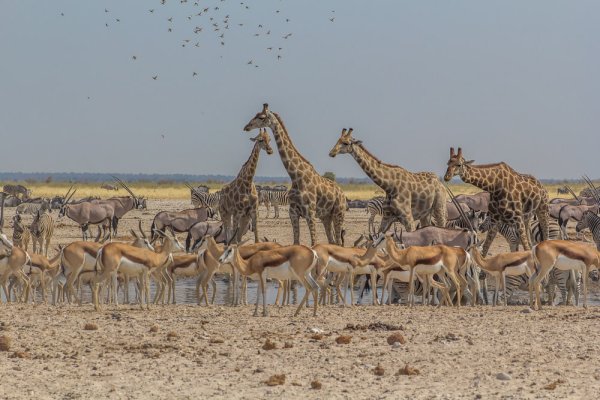
The only kind of ‘overcrowding’ you should experience on an African safari
5. Accommodation Options
-
Private Game Reserves: Accommodations in private reserves often cater to a higher-end market, offering luxury lodges and camps with personalized service and amenities.
-
National Parks: National parks provide a wider range of lodging options, including budget-friendly campsites and more basic accommodations. This is a wonderful option for anyone on a tighter budget – it makes Africa’s extraordinary wildlife reserves within reach of everyone.
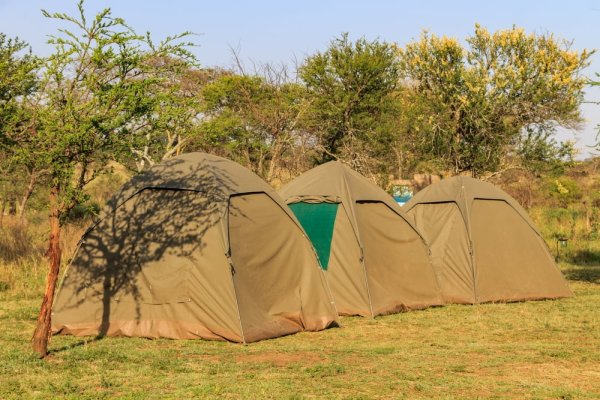
Safari camping in the Serengeti, Tanzania – an adventure like no other
6. Guided Experiences
-
Private Game Reserves: Guided safaris in private reserves often feature highly trained and knowledgeable guides who can tailor the experience to your interests. Given guests tend to favour multi-day stays in one place, private lodges also offer a wider variety of excursions and adventures. You might be offered a last-minute night game drive because animals have been spotted nearby, enjoy a sundowner get-together in front of a popular watering hole, or head off on a guided walk through the bush. These are all activities which aren’t allowed in national parks.
-
National Parks: National parks have a mix of professional guides and self-drive options, allowing for more independent exploration. This also requires honed-in wildlife tracking skills, which many visitors lack. It's not unusual to see self-guided visitors following guided vehicles around, hoping to see what they see. For this reason, vehicle convoys and large numbers of vehicles around even a single animal are not uncommon in national parks – something that stresses people and, more importantly, wildlife. It takes a bit more effort to get away from the crowds.
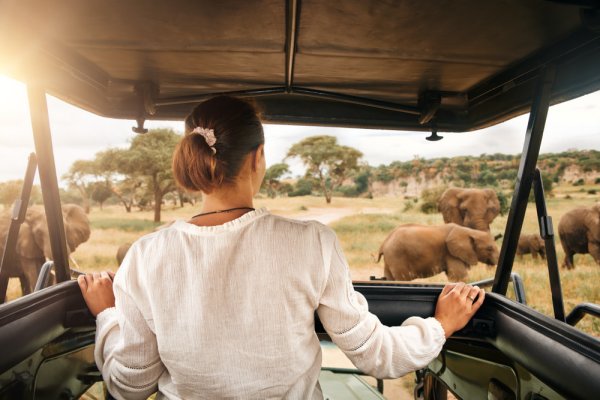
On a guided game drive in a private reserve, you feel like you have the whole place to yourself
7. Costs
-
Private Game Reserves: Safaris in private reserves tend to be more expensive due to their exclusivity and high-quality accommodations and services. The experience is exclusive to the max, and the rewards are astonishing. There are various tactics to mitigate the costs of an African safari. Always remember that Africa is a continent – some countries are less expensive than others, which means some private game reserves are cheaper. You can also plan a hybrid itinerary in different destinations, including overnight stays in national parks and private game reserves. This is a fantastic way to experience both! Our tip? Leave the private game reserve to stay for the end of your safari to cap off your trip in style.
-
National Parks: Safaris in national parks can be more budget-friendly, with various options to suit different price points. They also boast mid-range lodges that offer comfort and safety for the night.
No matter where or how you choose to experience an Africa safari, know that wildlife always comes first. Environmental and wildlife conservation concerns are primary objectives in both national parks and private game reserves, so trust that your African wildlife experiences will be jaw-dropping, no matter what.
Peruse our extensive collection of Africa Tours and contact our Destination Specialists. They’ll help you plan the African safari you've always dreamed of.
But wait, there’s more…
Laura Pattara
Laura Pattara has guided overland trips across Africa and now focuses her writing on the continent for Viva Expeditions. She once camped beneath a marula tree that an elephant tore apart during the night, yet somehow she still sleeps best in a tent. But make it glam! From sunrise balloon rides over the Serengeti to following the rhythms of wildlife migrations, Laura brings the wild heart of Africa to life with warmth, depth, and the occasional muddy boot.
|
